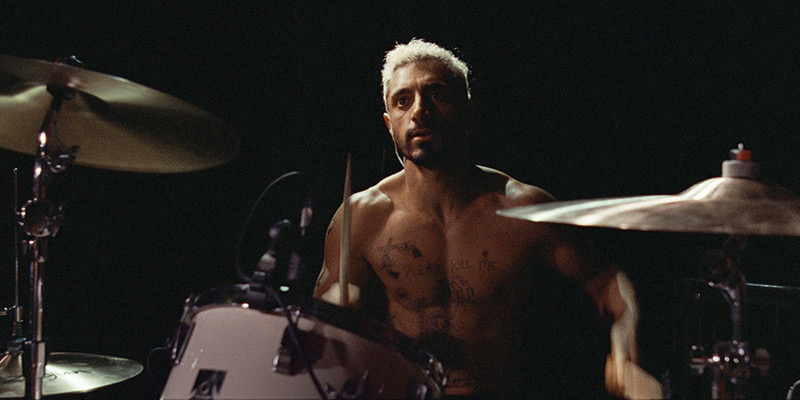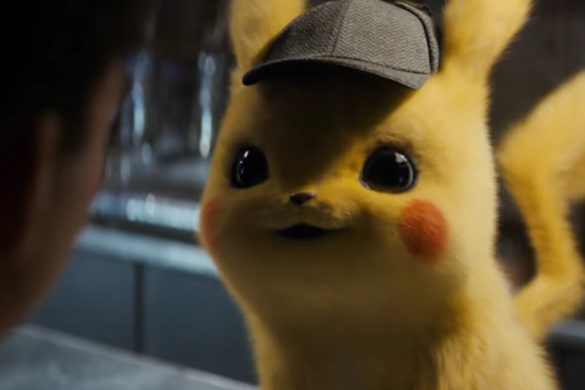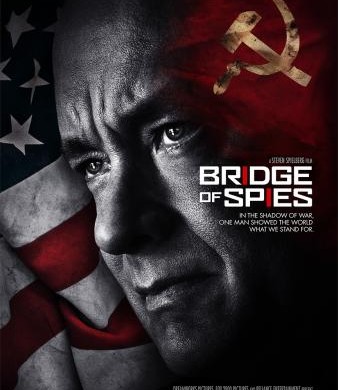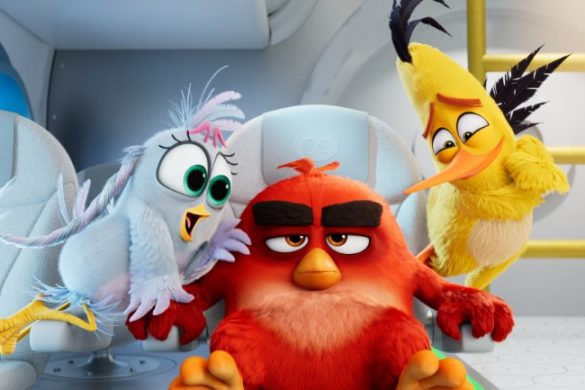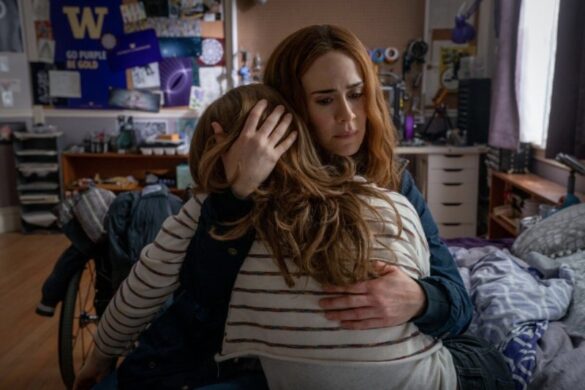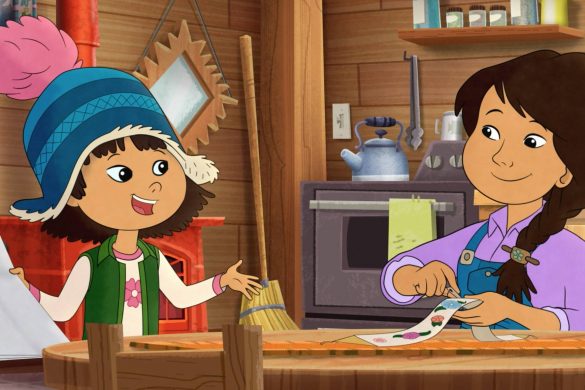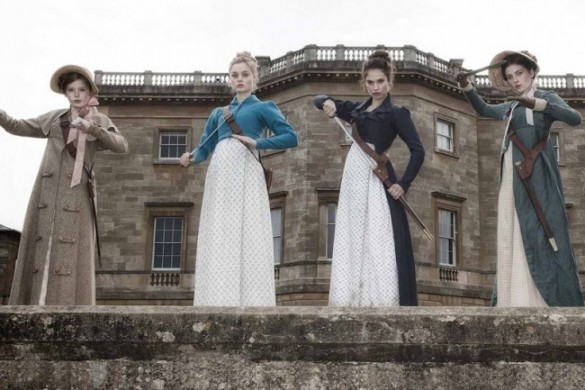Darius Marder’s Sound of Metal represents one’s relationship with the sense of hearing in a stunning way. The film explores Ruben’s (Riz Ahmed) story of a punk drummer whose hearing is rapidly deteriorating and how he copes with his sudden loss to come to understand his new identity. The sound work which is either distorted or muted puts those of hearing into the mindset of what it is like to be deaf. Its a film that is not only inclusive but reveals how the deaf community has been overlooked in both media and how they consume it.
And “Sound of Metal” lets us see how those of hearing communicate with those who are deaf. It’s a kind of relationship that is rarely explored or portrayed on screen.
In a way, Olivia Cooke’s Lou represents that change. As Ruben’s (Riz Ahmed) girlfriend and lead singer of guitar band, she fully understands what their relationship means as two people who rely on each other for their sobriety. Not only that, she gets Ruben the help he needs to get adjusted to his new identity as a deaf person.
ThatsItLA had the chance to talk to both Cooke and Marder about working with Riz, the technical aspects that help put the actor into the mindset of being a part of the deaf community, and share their thoughts on the deaf culture.
“’Sound of Metal’ really speaks to the deaf community in a way that those of hearing can comprehend. Your use of sound and technology gives us the kind of insight that very few films with deaf characters can offer. So I was wondering how you found that balance of being authentic without having to sacrifice your creativity?”
Darius Marder: “You never sacrifice authenticity. Any amount of authenticity that can be bequeathed upon a movie is a gift to that movie. It’s impossible, for me personally, to imagine anyone portraying deaf culture who isn’t apart of deaf culture just as roses portraying any culture from someone outside of that culture. It would be an embarrassment. That is pretty obvious to me anyway. Deaf culture represents itself in this movie. It is not mine to represent. They represent an aspect and aspects of deaf culture, which is a huge word, because it has many subcultures within it. But then there is all sort of other things, whether its Paul [Raci], a two-time Vietnam War veteran, who played the character of Joe. Those kinds of things, when you talk about authenticity, and look in someone’s eyes when they are talking about the war and you can feel the war in their eyes. That’s a gift to a movie. That’s a gift to a writer, director, or any actor.”
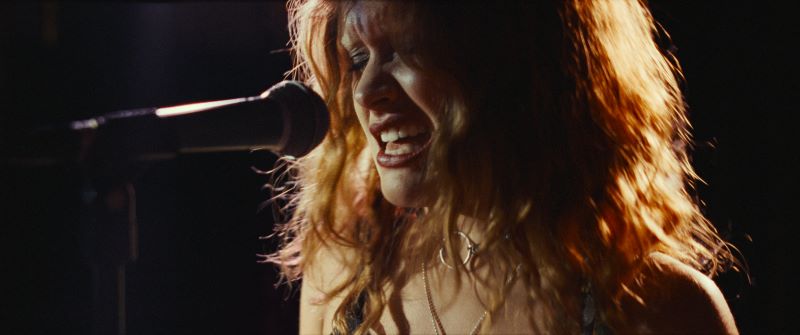
Congratulations on the “Sound of Metal,” it’s such a great film. You give such a great performance in the film despite the fact that you are in it for such a limited amount of time. And when we see you, it’s during two different points in your character’s lives. In a way, it’s a transformative process. I was just wondering what it was like to act alongside Riz during that process.
Olivia Cooke: We shot the film chronologically, so we had a few months of rehearsals where we rehearsed as a band and rehearsed scenes and figured out who these characters were and who they were in relationship to each other and what their relationship was like. So, it felt quite easy, and it was intense because we shot in airstream two or three weeks. And it was an independent film, so there is not a lot of money, so we shot it on film but got only two takes each, if that. So having to be in it the whole time. Then when I said good-bye to Riz [Ahmed], I said good-bye to Riz ad Ruben, then left him for a month and a half. I did go over to Europe, went to England, and then met up back with him a month and a half later afterwards.
We weren’t this estranged couple. He had an experience himself, and I have to, as well as the characters have, so it kind of made it authentic. Really spellbinding.
Has your perception changed about how the deaf community is perceived and portrayed in media?
Olivia Cooke: Absolutely. It’s not a disability, it’s a culture. The deaf community don’t see deafness as a hinderance at all. They already have their language. It’s just hearing people that do because we never tried to bridge the gap and learn how to sign on mass and we’ve made the hearing world an inaccessible place when it really wouldn’t make that much difference to facilitate to the deaf community.
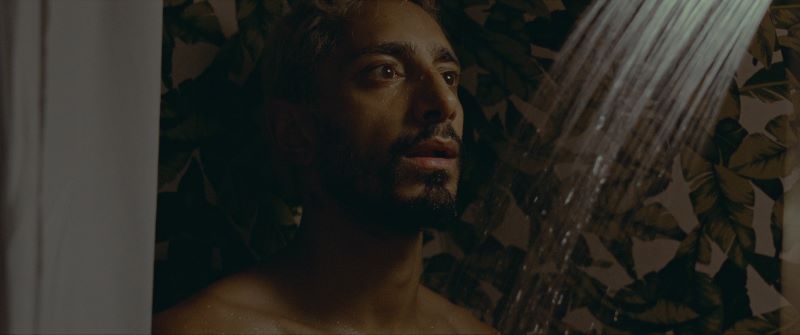
“What sort of help did Riz Ahmed get in order to put himself into the mindset of Ruben, a punk rock drummer who is discovering a new identity as a person who is on the verge of going deaf?”
Darius Marder: “Well, Riz had a lot of help in the sense that he had a drum instructor, Guy Licata, who he worked with for a long time. He also had another guy, Sean Powell, another drummer who was another character inspiration. And he had Jeremy Stone who taught him sign language, and this went on for seven or eight months prior to shooting. So he had a lot of help, did a lot of work, wanted to get a trainer to help get into a drum body, so many aspects to his prep.
But on set there were other aspects to his help. On set, one of the great gifts that Riz had was working with deaf people, as he would tell you. Because hearing people, you say to a hearing person ‘hey how you doing,’ and the guy goes, ‘I am doing pretty well.’ Nothing about their face registers any emotion at all, whereas deaf culture, half of the language is in your face. So, you have to wear emotion. So that is a great gift for actor because you have to be present and you have to be emotive.
Riz also had technological gifts in the shooting of this film. He had ear pieces that were custom made to block his hearing and to emit a white noise into his ear so he couldn’t hear his own voice. That was a gift. Because it allowed him to relinquish control and it made him have to struggle with the emotional truth of that. So, it’s all of these things. And the music and the drumming was a gift. Because you have to play it and you have to earn it. All the things raise that bar of authenticity. Or at least that was the design of it.”
Darius Marder’s “Sound Of Metal” debuts on Amazon Prime on December 4, 2020. Read our review of the film here.

